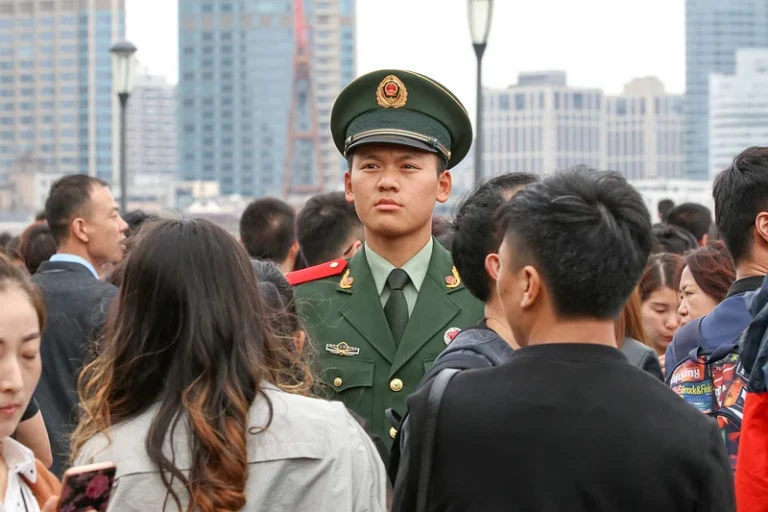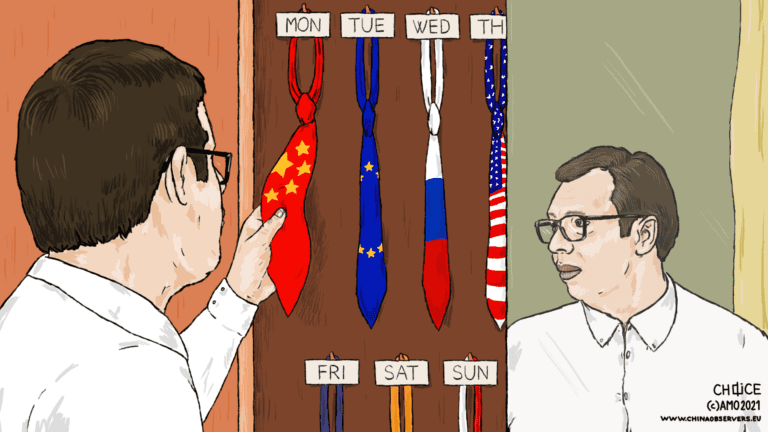
This article was originally published by the European Council on Foreign Relations (ECFR) and is republished here with the permission of the author.
Activities by Huawei and the Chinese authorities in Bulgaria suggest a more elaborate and all-embracing approach to engaging society.
The deputy rector of Ruse University in northern Bulgaria must have been proud when Huawei awarded scholarships to five of her students. But they were not alone. The Chinese telecoms firm is accelerating its scholarship program in the country: since the scheme began five years ago, close to 500 people from almost every Bulgarian university have participated. Yet, this is only one aspect of Chinese presence in the country. In fact, this particular effort likely forms just one part of a broader, mutually supportive ecosystem of activity involving multiple actors, levels, and constituencies.
Huawei has been implementing an ambitious program of new agreements with Higher Education institutions. It is equipping universities with labs and assisting tech hubs. At the school and kindergarten levels, the company is offering “digital classrooms” and STEM programs under the “Smart Education” brand.
With little fanfare, Huawei is now further expanding its activities and broadening its constituency base. It is moving beyond education: its infrastructure is embedded in numerous “smart systems” across the country, including city CCTV monitoring, transport, energy, urban infrastructure and waste management. At the ministerial level, Huawei is signing memoranda of understanding to conduct digital skills programs. The firm is also venturing into “digital leadership support” for women, both in Bulgaria and across Europe.
There have long been ties between the Chinese authorities and the Bulgarian Socialist Party, but more broadly, China is strengthening its political outreach to two significant parties which are now in the Bulgarian government. Chinese authorities have all but replaced the Sofia Confucius Institute with an active and expansive Chinese cultural center. The country’s cultural presence has also entered kindergartens through language courses.
In agriculture, various joint product development projects between Chinese and Bulgarian firms are underway. After years of stalling, Chinese companies are now entering Bulgaria’s auto parts sector. Additionally, a prominent media outlet hosts daily news updates from official Chinese sources. Beijing is also working to build closer ties with local authorities and communities; recently, the Chinese embassy announced plans to open a “Chinese culture corner” in the small town of Elin Pelin, which has a population of just 6,849 people.
A transformation is taking place. China appears to be shifting from a strategy focused on elites and key actors to a strategy of horizontal engagement, which involves an ever-wider range of entities and actors. It is adopting an approach which complements its state-based strategy with a society-based one.
Notably, Huawei is rolling out this new approach in a relatively exposed part of Europe. Across the European Union, efforts to counter 5G penetration, protect critical infrastructure, and implement key provisions and risk prevention measures have seen mixed success. There remains little transparency and information about the extent of Chinese vendor penetration in EU telecom networks. Indeed, Bulgaria lags in fulfilling its commitments on 5G, both at the EU level and in its bilateral cooperation with the United States. Since signing a “Clean Network” 5G security memorandum with Washington, Sofia has done very little to implement its commitments.
The EU’s persistent strategic ambivalence towards China, uneven political focus on the issue, and the non-binding nature of most of its policies have all fostered a weak response. The US efforts to systematically counter these risks has also been inconsistent. Within Bulgaria, China has not featured prominently in security debates, partly due to national political gridlock over the past four years.
Naturally, the online space is also a battlefield, and there are signs of greater coordination in Chinese actions. Data released by the online analysis firm Graphika reveals that the international hype around the Chinese AI company DeepSeek was not an organic wave of impressed audiences. The analysis details how coordinated efforts planted and amplified narratives about the purported dominance of the US and the West. This campaign was executed by dozens of social media accounts across X, Facebook, Instagram, and Weibo. An earlier precursor to this approach was an online influence campaign on YouTube conducted by Chinese actors in 2023, as detailed by the Australian Strategic Policy Institute.
It is probably not surprising, then, that the initial wave of enthusiasm for DeepSeek largely overlooked the security risks associated with using the application. And immediately after its release, the company’s founder met with Chinese Prime Minister Li Qiang and other state representatives. The occasion was used to reaffirm, yet again, the priority given by the authorities to the development of AI. Within days, all three major Chinese telecom operators had integrated DeepSeek’s model into their services. Chinese leader Xi Jinping has held it up as a symbol of China’s economic rejuvenation.
The extent of this recalibrated approach toward countries such as Bulgaria requires further scrutiny, including deeper analysis using broader data sets across more European nations. Things are visibly changing. Europeans should watch carefully for further shifts in Chinese statecraft.
Written by
Vladimir Shopov
Vladimir Shopov is a visiting fellow with the Asia programme at the European Council on Foreign Relations. He is a consultant, researcher and columnist with 20 years of experience and has worked with numerous companies from Austria, Belgium, Germany, Spain, Sweden, UK, US and others. Shopov has also worked with the European Parliament, MEPs, the European Commission, the British Council and many other European and Asian policy and research centres. He was adviser on EU affairs to the minister of home affairs (1997-1998), counsellor at the Bulgarian mission to the EU in Brussels (1998-2001), EU adviser at the British embassy in Sofia (2002-2003) and adviser to the minister of foreign affairs (2014-2017). He is a graduate in political science and comparative politics with MA degrees from Sofia University St. Kliment of Ohrid and the London School of Economics and Political Science. He has also studied in Oxford University, London University (Queen Mary College), New School for Social Research, California State University, Peking University and King’s College London.


